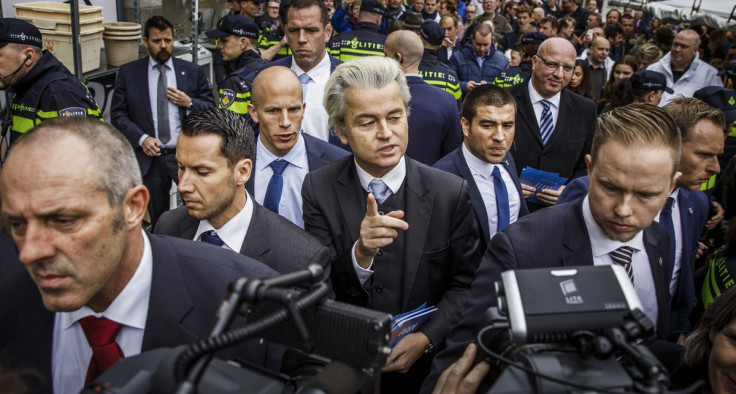Dutch voters reject EU-Ukraine treaty in referendum

Dutch voters rejected an EU free trade deal with Ukraine in a non-binding referendum. With all votes counted the 30% turnout condition was met and the vote will be valid.
National news agency ANP reported that 61.1% rejected the EU-Ukraine deal, while 38.1% voted for it. The remaining votes were spoilt or blank.
The result signifies profound doubts about the Netherlands' place in Europe among Dutch voters, and comes two months ahead of the UK's referendum on whether to leave the EU.
A founding member of the EU, there has been a surge in Euroscepticism in the Netherlands in recent years, and voters rejected the proposed EU constitution in 2005.
Prime Minister Mark Rutte, who campaigned to ratify the treaty, said: "If the turnout is above 30%, with such a big victory for the 'No' camp, you can't just go ahead and ratify the treaty." However, he said he would discuss the result with his cabinet, and in the Dutch and European parliaments before arriving at a decision, in a process he said could take "days if not weeks".
Far-right Eurosceptic MP Geert Wilders hailed the vote as a victory. "It looks like the Dutch people said 'NO' to the European elite and 'NO' to the treaty with the Ukraine," he tweeted. "The beginning of the end of the EU."
The political, trade and defence treaty is already provisionally in place, but requires the ratification of all 28 EU member states to take full legal force. The Netherlands is the only country not to have ratified it.
It is the first referendum held in the country since a 2015 law made it possible to force a plebiscite by gathering 300,000 signatures on the internet. Eurosceptics presented it as an opportunity for voters to deliver a vote of no confidence in EU policies on the economy and migration.
"I think many Dutchmen are fed up with more European Union and this treaty with Ukraine that is not in the interests of the Dutch people," Wilders told reporters. "I hope that later, both in the United Kingdom and elsewhere in Europe, other countries will follow."
Those in favour of the deal argued that a triumph for the "No" campaign would hand a victory to Russian President Vladimir Putin, who is accused of systematic attempts to destabilise Ukraine following the ousting of pro-Moscow President Viktor Yanukovych in 2014. The deal, they said, would provide means for Ukraine to battle corruption and would boost security along the EU's borders.
In 2014 an airliner carrying mainly Dutch passengers was shot down over east Ukraine, with Dutch investigators alleging it was shot down by an anti-aircraft missile fired from territory controlled by a pro-Moscow militia.
Opponents of the deal though said that the EU should not be dealing with President Petro Poroshenko, who they accused of corruption. Poroshenko, who took power in 2014, is accused of tax evasion after a trove of recently leaked documents show he based companies offshore.
© Copyright IBTimes 2025. All rights reserved.






















